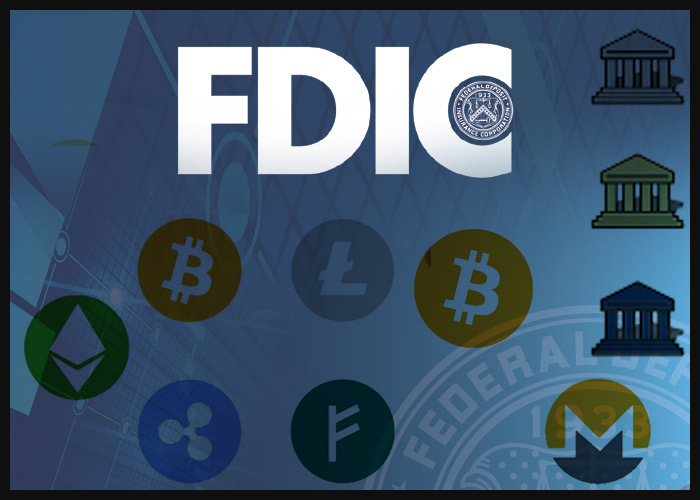The Federal Deposit Insurance Corp. or FDIC, has requested all FDIC-supervised institutions in the U.S., such as banks and financial institutions, that are currently engaged in or intend to engage in any activities involving or related to crypto assets to notify the agency, according to a letter addressed to all FDIC-supervised institutions.
The institutions are requested to provide information about their activities to the appropriate FDIC Regional Director in order to allow the agency to assess the safety and soundness, consumer protection, and financial stability implications of such activities. The FDIC added that institutions notifying the FDIC are also encouraged to notify their state regulator.
Following the receipt of the relevant information, the FDIC will review the information and provide relevant supervisory feedback to the institution about the proposed activity. Additional information also may be requested as needed.
The information requested by the FDIC will vary on a case-specific basis depending on the type of crypto-related activity. However, the initial notification to the FDIC Regional Director should describe the activity in detail and provide the institution’s proposed timeline for engaging in the activity.
All FDIC-supervised institutions should be able to demonstrate their ability to conduct crypto-related activities in a safe and sound manner, the FDIC said.
The FDIC noted that crypto-related activities may pose significant safety and soundness risks, as well as financial stability and consumer protection concerns. Moreover, these risks and concerns are evolving as crypto-related activities are not yet fully understood.
The agency added that there is little consistency in the definitions associated with many crypto assets and crypto-related activities, which makes it difficult to categorically identify these assets and activities.
The FDIC is an independent federal agency created by the Congress to maintain stability and public confidence in the nation’s financial system. The FDIC insures deposits in U.S. banks and thrifts in the event of bank failures for up to $250,000 per ownership category.
The FDIC is looking to consider each crypto-related activity on an individual basis to adequately assess the safety and soundness, financial stability, and consumer protection implications.
Additionally, the agency noted that there is significant anti-money laundering and terror financing implications and concerns related to crypto assets, including reported instances of crypto assets being used for illicit activities.
It added that there are concerns about the credit risk exposure posed by the crypto asset or the structure that the asset is held in, including whether it is possible to measure the degree of asset quality, credit risk, and counterparty risk exposure.
The FDIC said it is concerned that certain crypto assets or crypto-related activities may pose systemic risks to the financial system. Crypto-related activities present risks to consumers, and insured depository institutions face risks in effectively managing the application of consumer protection laws and regulations to new and changing crypto-related activities.
Source: Read Full Article
